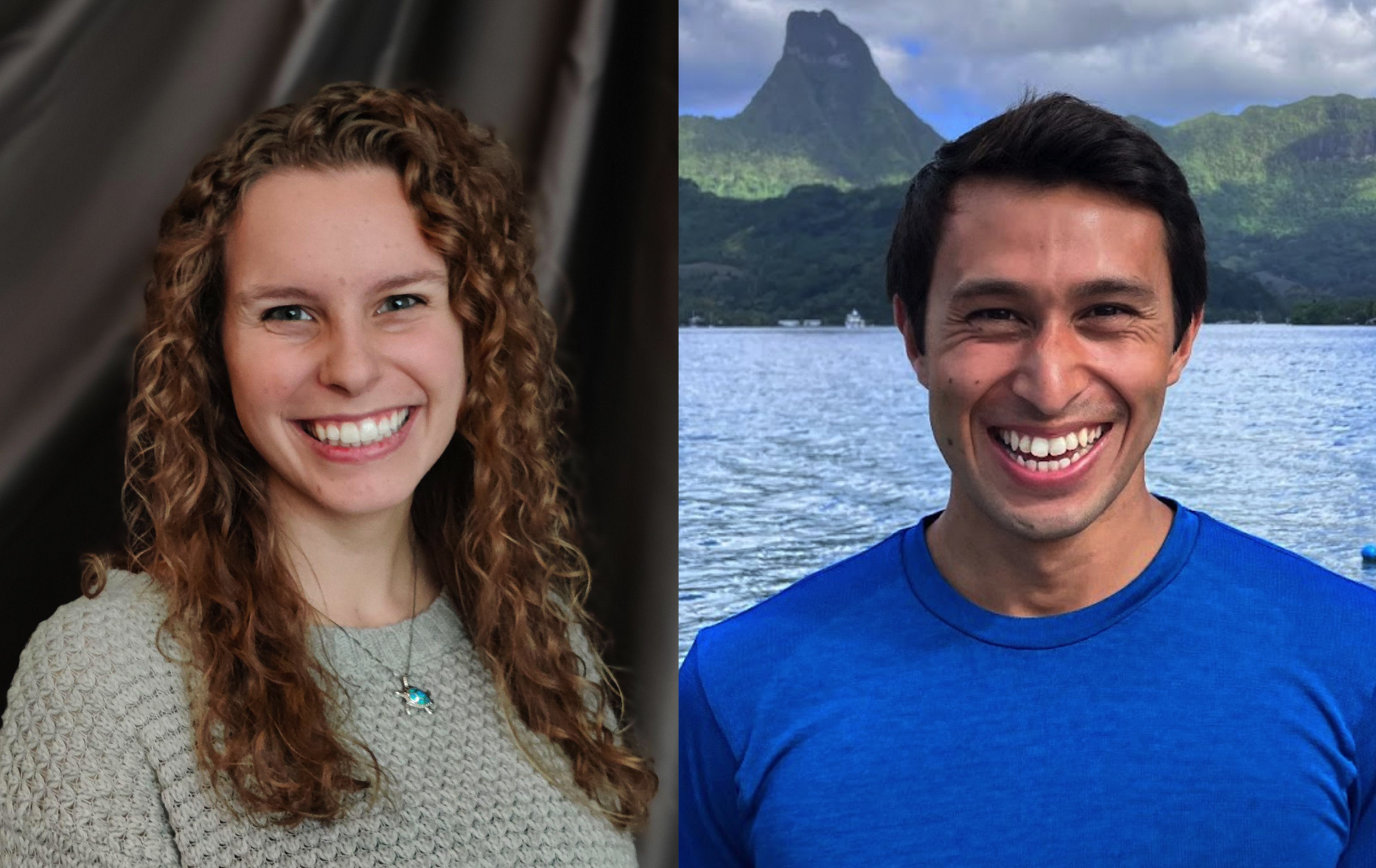Ph.D. students Cassandra Shriver, in Quantitative Biosciences (QBioS) and Noam Altman-Kurosaki in Biological Sciences have been selected to receive an ARCS® Scholar Award: Achievement Rewards for College Scientists. They are two of only eight from Georgia Tech to receive the scholarship this year, and join seven returning ARCS Scholars.
ARCS Scholars are selected annually by qualifying departments of science, engineering, and medical research within the ARCS Foundation’s 51 academic partner universities. The ARCS Scholars Award recognizes outstanding students who have a record of past achievement and who show exceptional promise of making a significant contribution to the worldwide advancement of science and technology. The ARCS fellowship is made possible each year by way of the fundraising and continuous generous support of the ARCS Foundation Atlanta Chapter.
Meet Cassandra Shriver
“I am honored to be recognized for my previous achievements and grateful to be joining a wonderful community of people passionate about advancing science and technology,” said Shriver.
Her proposed research is to analyze how scaling affects mammalian climbing mechanics, with emphasis on conservation applications.
“I plan to observe and compare gait kinematics for mammals of various sizes, with the understanding that scaling relationships may require alternative postures or strategies to overcome gravitational forces,” Shriver explained. “This research will require extensive collaborations with zoological and wildlife institutions, which are often more willing to collaborate when efforts are made to include conservation and animal welfare initiatives in research proposals.”
“Specifically, I'm curious how various morphological differences and scaling constraints affect climbing kinematics,” she explained, “and how these strategies might change as you increase in size from something as small as a squirrel to as large as a bear.”
“Cassie is an ideal student for this project in the biological sciences, combining her technical engineering background with her interest for studying natural systems,” said Professor and Associate Chair for Faculty Development in the School of Biological Sciences Young-Hui Chang, Shriver is co-advised by Chang and David Hu, professor in the Woodruff School of Mechanical Engineering with a joint appointment in the School of Biological Sciences.
“In particular, Cassie has a passion for understanding animal behavior and impacting conservation efforts, which has led to her research on climbing biomechanics,” Chang added. “I have no doubt that the ARCS scholarship will play a major role in helping Cassie continue to develop as a scientist that will work to grow the conservation technology community in metro-Atlanta and make Georgia Tech an industry leader in sustainable and evidenced-based technology solutions for wildlife and beyond.”
In her first year of graduate school at Georgia Tech, Shriver engaged in a project mentoring students to create a solution to solve an urban human-wildlife conflict, designing an open source automated rabies vaccine dispenser for foxes.
Meet Noam Altman-Kurosaki
Ph.D. candidate Noam Altman-Kurosaki, a graduate research assistant in the School of Biological Sciences added on receiving the ARCS Award, “I'm very excited and honored to have received it.”
Most of Altman-Kurosaki’s work takes place in Mo'orea, French Polynesia, studying the mechanisms that drive coral reef decline and recovery, often focusing on how anthropogenic stressors alter the interactions between corals, algae, and fishes.
“As you can imagine, doing work out here can get quite costly,” Altman-Kurosaki explained, adding that the award will also “help me cover the difference in the cost of living and supplies for my work.”
Working in the lab of Professor Mark Hay, an experimental marine ecologist known for his work on community, marine, and chemical ecology, Altman-Kurosaki said that Hay, who also holds the Teasley Chair in Environmental Biology and is a Regents’ Professor, has encouraged his curiosity and independence. This has made him a much stronger and more creative scientist overall, he said.
“Mark is really good at making sure I ‘couch’ my ideas in broader theory and ecological phenomena — and making sure that I can test them through manipulative experiments, not just correlative and comparative survey techniques,” said Altman-Kurosaki of his mentor and research advisor.
“Noam is innovative, energetic, resourceful, and a tireless researcher that is discovering new approaches to retain or recover the critical ecosystem services that threatened coral reefs provide to tropical human populations,” Hay added.
Altman-Kurosaki’s science career actually began with a pre-university trip to an aquarium. “I saw a Mola mola and couldn't believe something so ridiculous existed on this planet,” he said of the ocean sunfish. “So I decided on a lark to take the classes I'd need for my university's summer marine biology course. I ended up falling in love with the general field of ecology, and that love only deepened when I finally got hands-on field experience in marine biology.”
As he continued to gain experience and learn more about the field, Altman-Kurosaki began to realize that this was what he wanted to do with his life, and ultimately decided to pursue a graduate education to keep conducting research.
About ARCS®
The ARCS® Foundation, a national organization started by a group of women “who focused upon the future” in 1958, has granted more than $120 million to over 10,000 ARCS Scholars in top-rated STEM programs at leading US universities who are “determined to be the best and the brightest in their fields.” The awards are given to outstanding students who are U.S. citizens studying to complete degrees in science, engineering, math, technology, and medical research.
ARCS® Foundation Atlanta, comprised of about 150 philanthropic women, supports scholars from Emory University, Morehouse College, and the University of Georgia, in addition to Georgia Tech. The Atlanta chapter has awarded more than $4.5 million to over 400 scholars since it was incorporated in 1992.
For More Information Contact
Writer:
Laurie E. Smith, College of Sciences
Editor and Contact:
Jess Hunt-Ralston
Director of Communications
College of Sciences at Georgia



